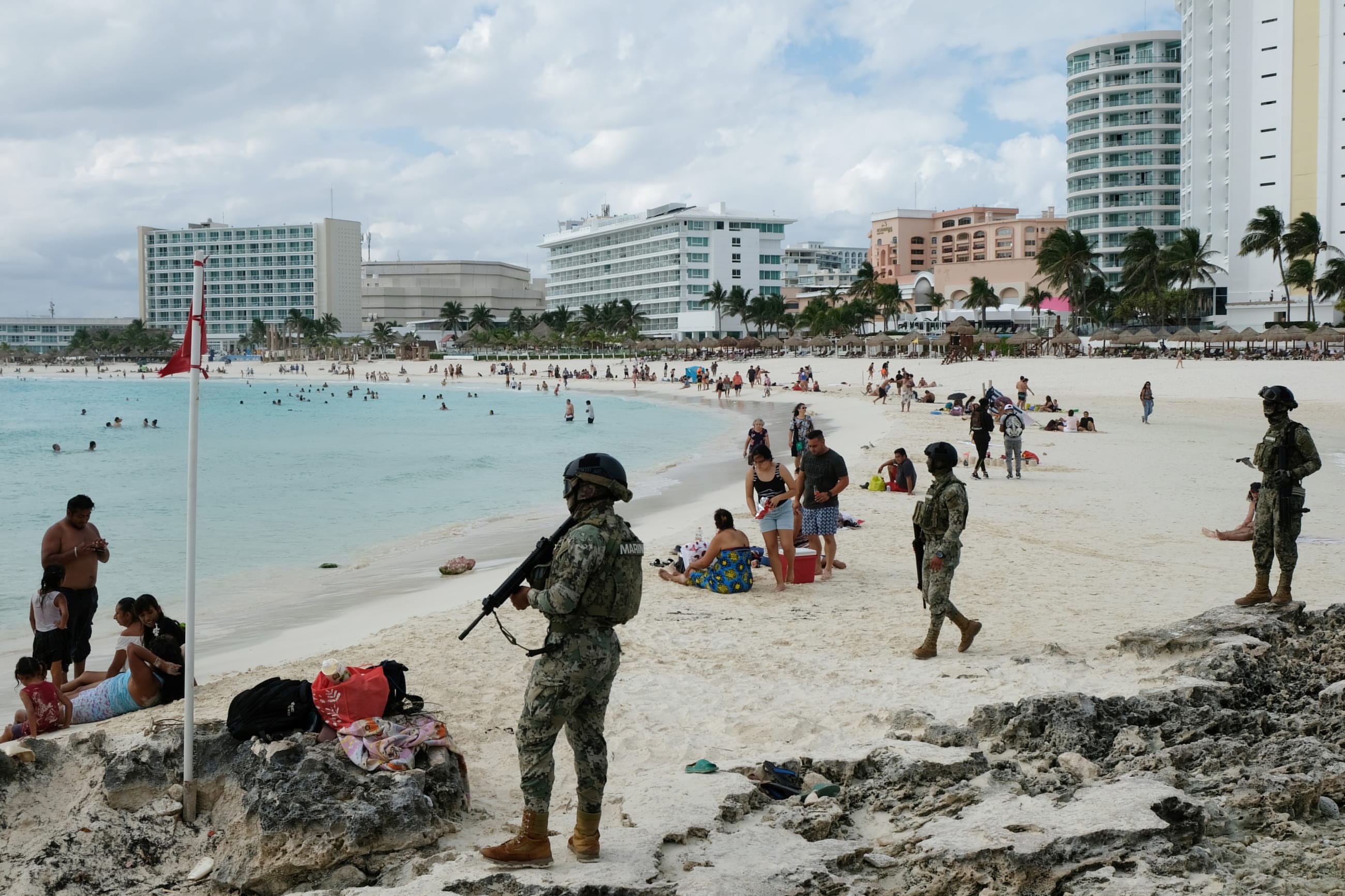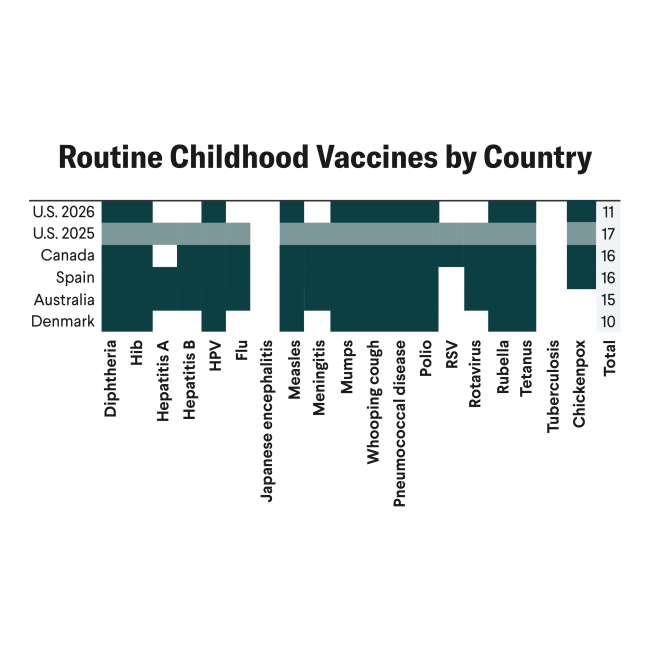Managing international travel is a fulcrum of foreign policy during a pandemic. With new variants emerging and increasingly cheap and effective testing options available, countries receiving international travelers can and should be more vigilant. As people around the world travel for holidays or for business, many countries are ramping up their entry requirements to minimize the spread of COVID-19 and its variants.
Despite the new threat omicron poses and Mexico's status as the most visited country in Latin America and the seventh most visited country in the world during the pandemic, it is not rising to the occasion. The Mexican Ministry of Tourism estimates that by the end of 2021, 28.4 million international tourists will have visited the country, bringing in more than 14 billion dollars in revenue. This figure represents 7.1 percent of gross domestic product (GDP), a decrease from 8.7 percent of GDP in 2019, before the pandemic. In 2021, the tourism sector generated almost $87 billion from 405 projects that will bring 139,000 jobs to Nayarit, Baja California Sur, Yucatán, Quintana Roo, and Mexico City.
Paradoxically, Mexico is also one of the very few countries in the world with no COVID-19 entry requirements. Why would Mexico not implement any travel restrictions to protect the health of its people and those visiting the country? Because tourism and the economy are being valued over human life.
Tourism and the economy are being valued over human life
The Mexican government has touted its use of foreign policy as a tool to combat the COVID-19 pandemic and it has drawn attention to the "international strategies" implemented during the pandemic. According to the Mexican Ministry of Foreign Affairs' book, Mexico's International Strategy for the COVID-19 Pandemic: March 2020-September 2021, Mexico played a leadership role in mitigating the public health crisis throughout Latin America and globally through multilateralism and international solidarity. At the time of the book's release, Marcelo Ebrard, Mexico's Minister of Foreign Affairs, applauded the government's leadership role in effective vaccine and equipment procurement, donating to countries in the region with fewer resources, and repatriating Mexican citizens and protecting those abroad. He claimed these actions saved millions of lives but he ignored the lack of international travel restrictions—a foreign policy decision that may perpetuate the threat of COVID-19 deaths.
Mexico did implement innovative policies to protect its citizens abroad. About 97 percent of citizens living outside of Mexico reside in the United States, and Mexican consulates in the United States built local and state partnerships to create targeted outreach strategies for vulnerable populations. Through these efforts, 76,000 Mexicans were vaccinated against COVID-19 in thirty-three consulates.
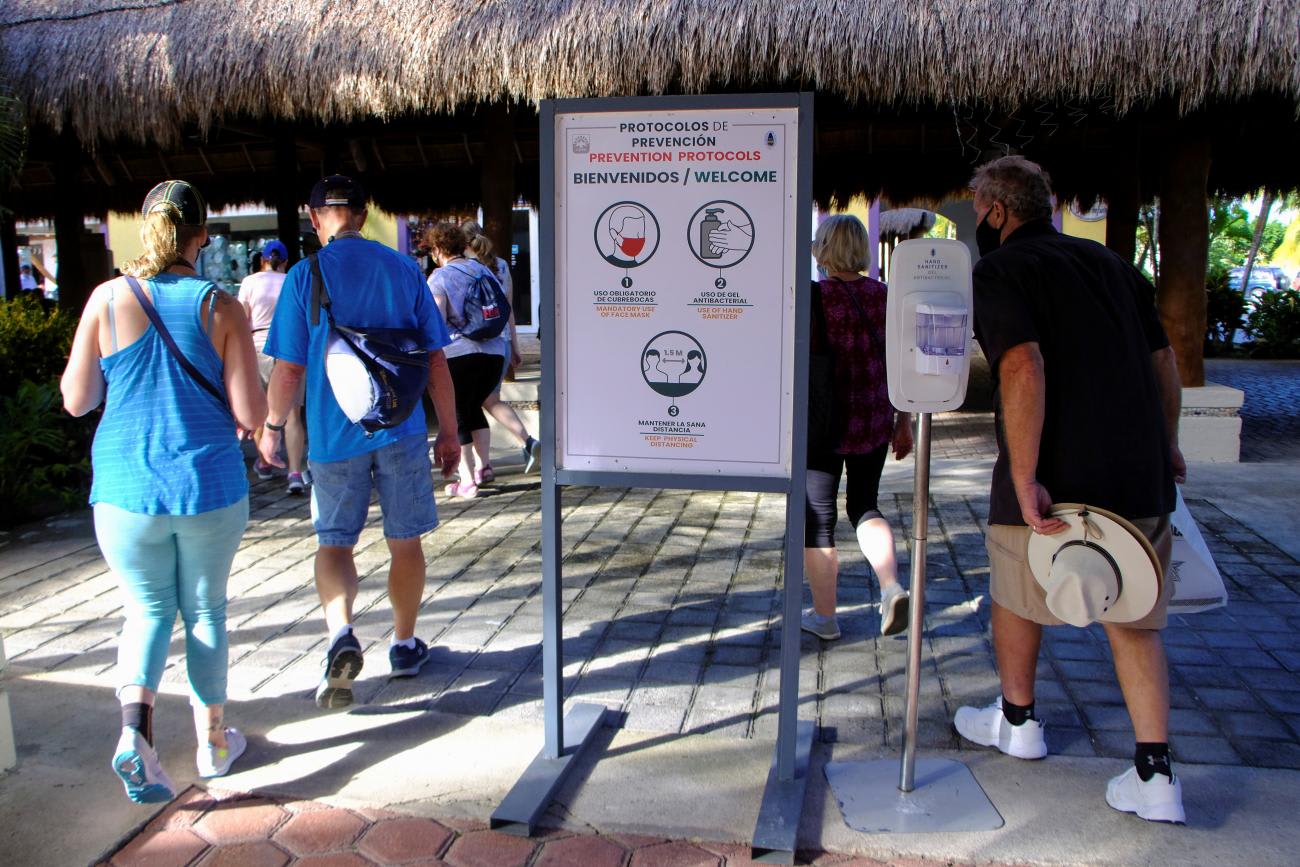
Canada has the world's second largest expatriate Mexican population—more than 100,000 permanent residents and more than 25,000 temporary farm workers. The Foreign Ministry guaranteed safe and secure working conditions for Mexican farm workers, which allowed for their safe arrival and return. While the Mexican Foreign Ministry underscored the measures used to safeguard Mexicans abroad, the lack of restrictions required to enter the country is notably absent from public discussion.
Meanwhile, Latin America has reported close to a quarter (24 percent) of the world's COVID-19 cases, with Mexico ranking fifth in COVID-19 deaths (as of the publication of this article), even though it is the tenth most populous country in the world. Despite the pandemic's ongoing impact, Mexico's vaccination rates remain lower, with close to 50 percent of the Mexican population still unvaccinated, including those who are still not eligible to receive the vaccine, such as young children. The slow vaccination roll-out has resulted in long waits for boosters which are proving to be effective against severe COVID-19 from the omicron variant.
The lack of restrictions on international travel, especially alongside the lower vaccination rates, makes Mexico vulnerable to the next wave of COVID-19. Since the pandemic's beginning, no federal restrictions have been placed on international travel and no quarantines, vaccinations, or negative tests are required to enter Mexico via land, air, or water. Businesses such as resorts, hotels, and restaurants are not required to collect this information or turn away guests. Any limitations or restrictions are at the discretion of individual businesses. This is a clear example of "punt politics"—a term coined in a recent article in The Lancet Regional Americas which refers to dumping national responsibility for health-system stewardship and coordination on others less capable of managing policy.
Many tourists appear to be attracted to the loose COVID-19 restrictions and often do not follow local guidelines such as wearing masks
A lack of entry restrictions has resulted in many tourists "quarantining" in Mexico as well as an influx of U.S. tourists. For U.S. travelers, Cancún, San Jose del Cabo, and Mexico City are the most popular international destinations; Cancún International Airport reported it exceeded pre-pandemic aerial traffic this past summer.
Many tourists appear to be attracted to the loose COVID-19 restrictions and often do not follow local guidelines such as wearing masks. The lack of government action has led civil society groups to fill the policy gap by attempting to educate tourists on the need to wear masks. There is ample anecdotal evidence to suggest that many people who wish to enter the United States or other countries with vaccination entry requirements—including travelers coming from Brazil—make a "stop over" in Mexico.
Mexico is a distinct outlier in Latin America and the Caribbean. Since March 2021, most Latin American countries implemented entry requirements with various degrees of rigor and enforcement. Chile stands out as the most consistently rigorous throughout the pandemic. Similar to Argentina, Peru, and Bolivia, international travel was canceled in Chile at the start of the pandemic. As cases peaked, only limited entry was allowed for emergencies. Now, travelers to Chile must obtain a "health passport" showing they are fully vaccinated and have had a negative COVID-19 PCR diagnostic test within 72 hours of boarding their flight. Visitors must also provide proof of health insurance with coverage for COVID-19 and related health issues during their stay in Chile.
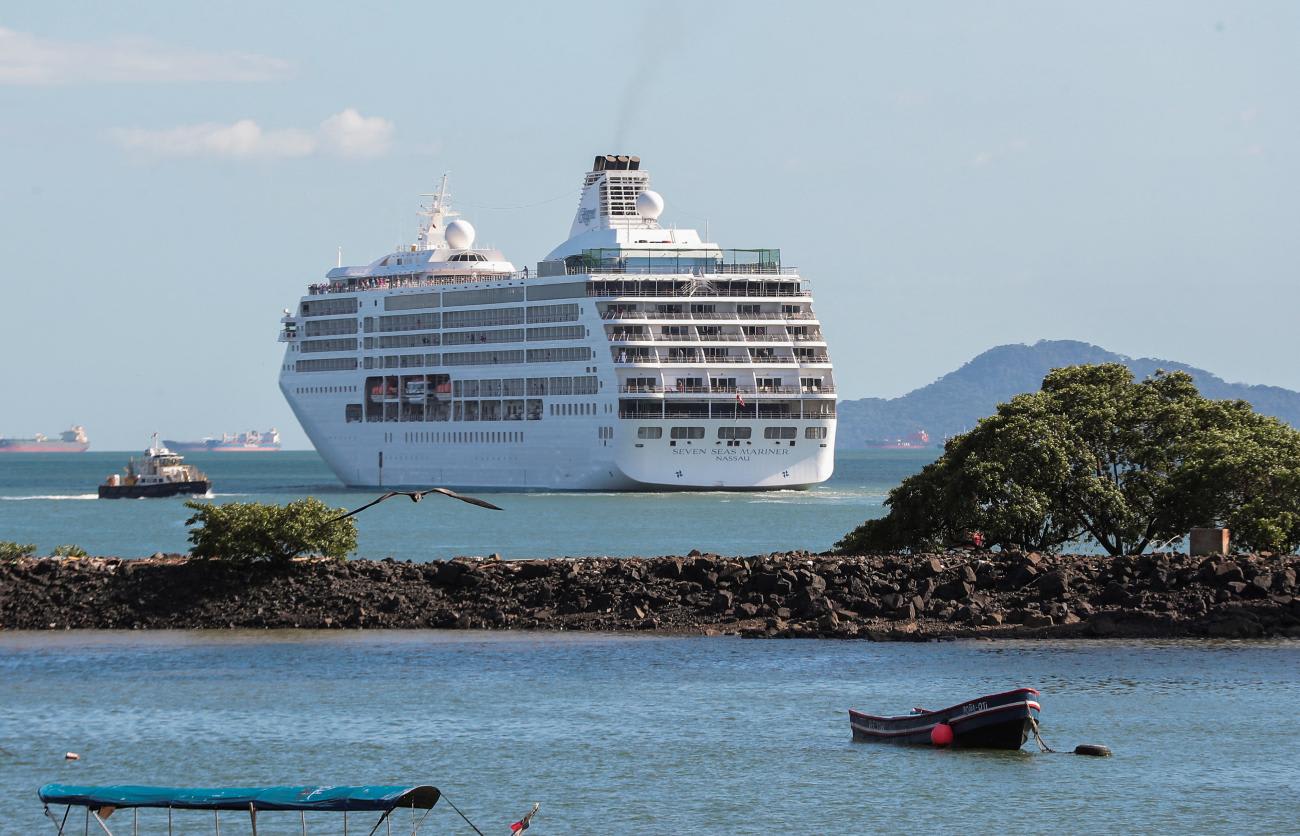
Colombia, Argentina, and Peru have also gradually decreased restrictions as vaccines have become readily available. Bolivia maintained some restrictions on travel despite its contentious political transition. Even Brazil, a country whose president has shown extreme disdain for public health measures such as mask wearing, requires travelers to show a negative PCR or antigen test performed within 72 hours of departure with most land and sea borders allowing limited entry. Costa Rica developed innovative economic and insurance schemes for international travelers designed to encourage safe tourism and discourage visitors who are not vaccinated. Unvaccinated visitors must pre-purchase health insurance mandated by the national government before entry into Costa Rica.
The Mexican government's COVID-19 foreign policy response is driven by short-sited economic gain rather than public health evidence. While the Mexican Ministry of Foreign Affairs protects the lives of Mexican migrants abroad, it is doing virtually nothing to protect Mexicans who live in the country from international travelers who may have COVID-19. This is despite Mexico's lower vaccination rates and the tremendous strain on a national health system that is unable to meet the health needs of most Mexicans. Mexico is expected to receive millions of tourists this holiday season, at the probable cost of the health and lives of many. An evidence-based, public health approach to international travel can and should be urgently put into practice to mitigate the risk of turning a season of celebration into one of mourning.
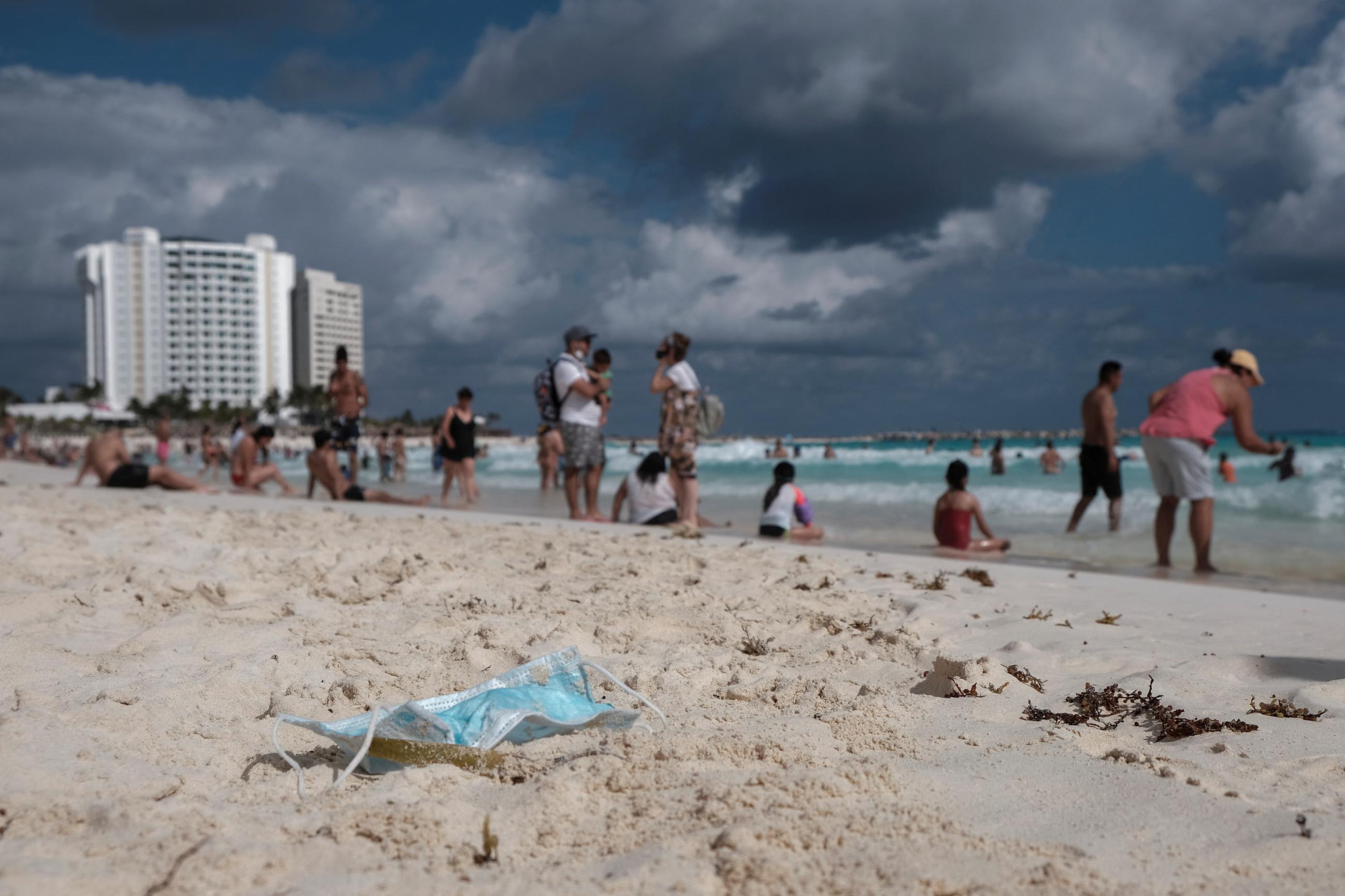
AUTHORS' NOTE: This article was written in collaboration with the Observatory of COVID-19 in the Americas.
